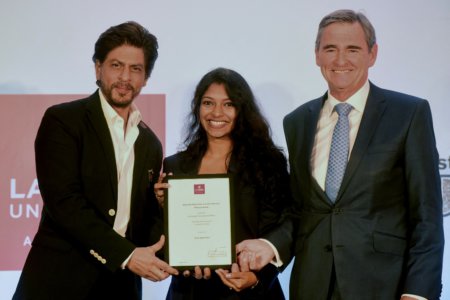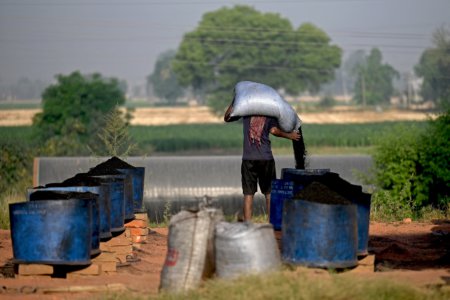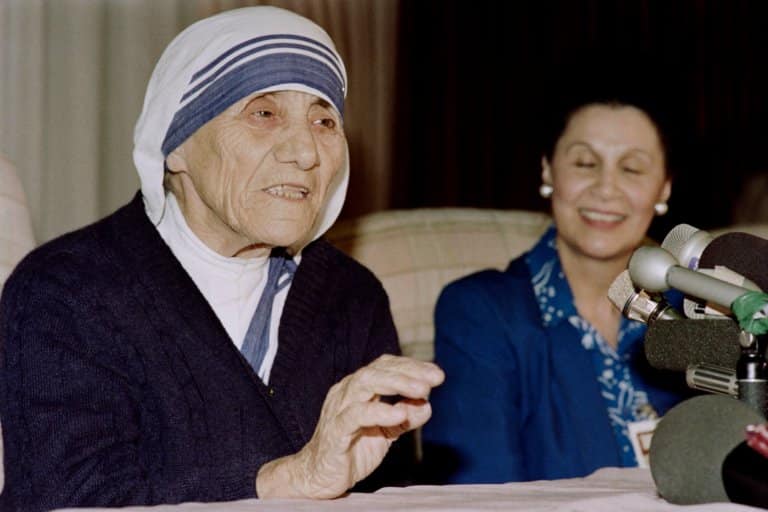
Winning a Nobel Prize cannot and should not be the only criterion by which a nation’s achievements are measured — but it is a matter of pride, like bringing home a gold medal from the Olympics. The annual event names Nobel laureates for their contributions in fields like physics, literature, and peace work.
Despite being an innovation powerhouse, only 12 of those have been awarded to Indian nationals. The question is: why are there so few Nobel Prize winners from India?
Since its foundation in 1901, the Nobel Prize has been awarded to a total of 947 individuals and 28 organisations. Although there is much to be said about the fact that only 58 of the winners are women, the fact remains that a staggeringly low amount of awards are given to those of Indian origin.
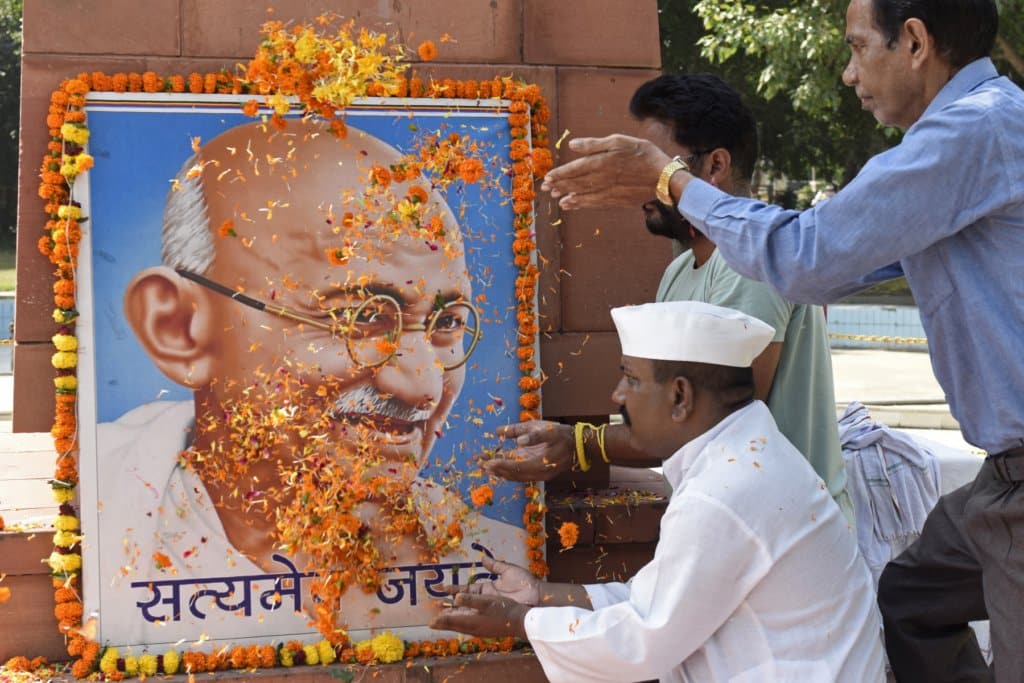
Social workers pay tribute to a photograph of Mahatma Gandhi on the occasion of his birth anniversary in Amritsar. Source: Narinder Nanu/AFP
Nobel Prize winners from India: A concerning debate
Science workers in India numbered 2,780,000 in 2018, making India the sixth-largest scientific workforce worldwide, according to a 2019 Research and Development Statistics report by the Department of Science and Technology (DST).
Lars Heikensten, executive director of the Nobel Foundation, however, believes India has had few Nobel laureates because the country “has not had a highly developed science system due to its poor economic resources”.
Alfred Nobel established the Nobel Prize with the values of science and international cooperation in mind — something Heikensten believed is under challenge in countries like India. In an excerpt of Heikensten’s interview at Vibrant Gujarat Global Summit, he mentioned that advanced science comes with a high level of economic development, something India has yet to achieve.
But that could soon change. “I would be very surprised if India in the next decade would not get many prizes. You are well-placed, you have an education system in place and you are growing rapidly. It is a fairly safe forecast,” Heikensten reportedly said.
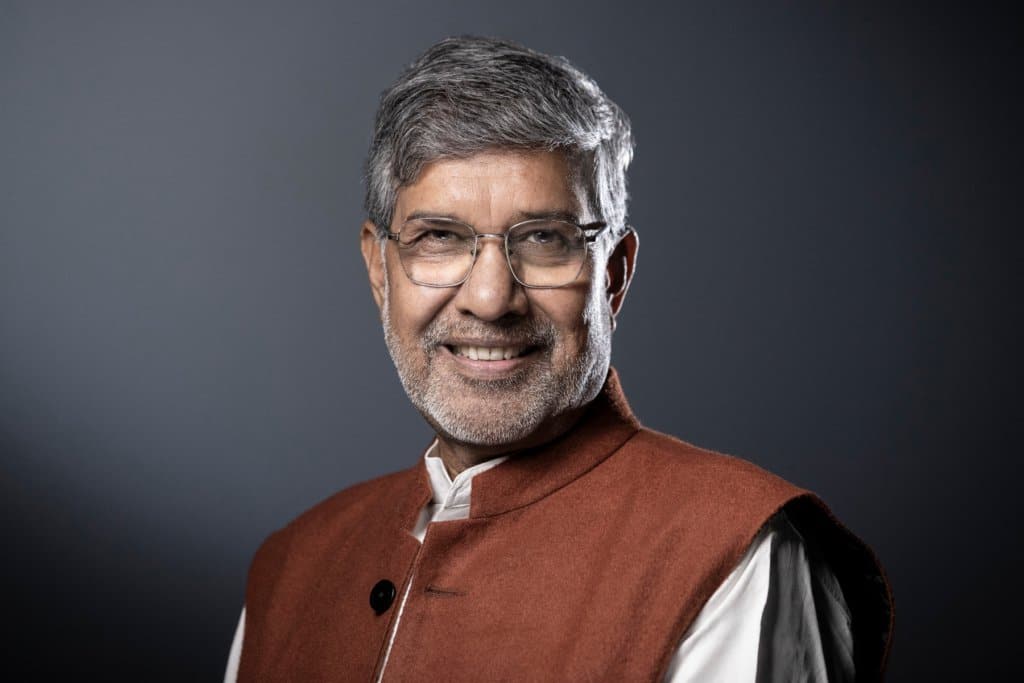
Indian children’s rights activist and 2014 Nobel Peace Prize Laureate Kailash Satyarthi poses during a photo session in Paris on March 11, 2019. Source: Joel Saget/AFP
The Indian perspective
All eyes are now on India — and experts like Heikensten are confident that the country will roll out more Nobel laureates.
But what does the Indian scientific community think? Suprakash Chandra Roy said in his article for WorldCrunch that mathematically, there should be more Nobel Prize winners from India as his home country has a higher chance of winning a Nobel Prize than a gold medal at the Olympics yet “history hasn’t borne this out.” According to him, many commentators believe that India’s “poor show at the Nobel Prizes” is due to the inadequate money spent on scientific work.
Countries that invest more on research and development (R&D) have won more Nobel Prizes in the sciences compared to countries that spend less. In 2014, the gross domestic product (GDP) data and the number of Nobel laureates from several countries reveal:
1. Four laureates from countries that spent up to 0.5% of GDP on R&D
2. 28 laureates from countries that spent 0.5 to 1% of GDP on R&D
3. 183 laureates from countries that spent 1 to 2% of GDP on R&D
4. 468 laureates from countries that spent 2 to 3% of GDP
The same cannot be said for India, as the country has spent 0.81% of its GDP on R&D but produced only one Nobel laureate in the sciences — Chandrasekhara Venkata Raman “for his work on the scattering of light and for the discovery of the effect named after him”— whereas there are 11 countries out there that have spent less than India but produced 22 laureates of their own. Roy concluded that more money will not “guarantee the outcome we seek”.
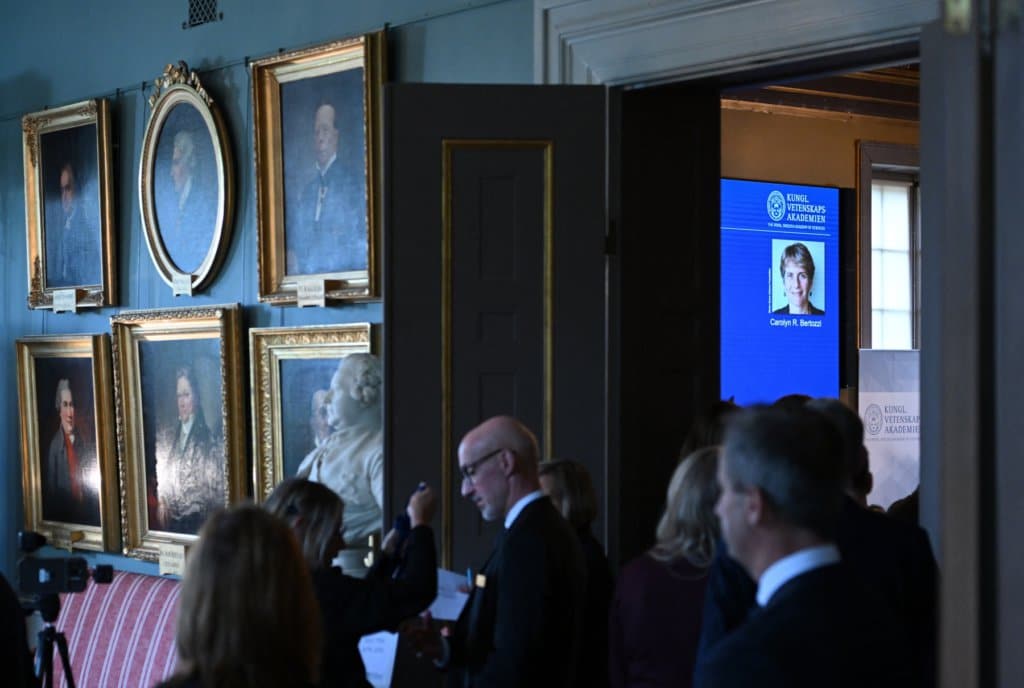
Nobel Prize winners from India are predicted to increase in the next decade. Source: Jonathan Nackstrand/AFP
What do academics have to say about the matter?
In their journal article “Why Indian Scientific Contributions do not Fetch Nobel Prize”, Velayudhan Mohan Kumar and Seithikurippu R. Pandi-Perumal wrote extensively on how the Indian government has tried to push for young people to pursue scientific research. Despite launching various programmes, there are very few who take on the challenge due to a few reasons: they prefer professional courses, administrative careers are more appealing, and there is a perception that it is a man’s world in these fields of research.
Kumar and Perumal detailed how there are obstacles in the way for there to be more Nobel Prize winners from India: “The majority of research is funded by governmental agencies in India. These financing agencies’ operations are far from admirable. They spend months, if not years, assessing the projects that they receive. Even after ‘experts’ have evaluated the proposals, another panel meets to decide who should receive financing. Those who are fortunate enough to receive the expert group’s endorsement will have to wait eternally for funding to be granted for study.”








